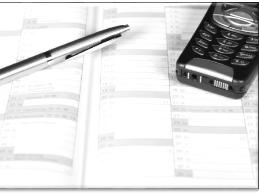From the desk of Melanie Whetzel, M.A., CBIS, Principal Consultant, Team Lead
Introduction
We usually think of spring as an opportunity to clean our homes, workspaces, and classrooms, but we really need to work at keeping our environments neat, clean, and organized throughout all of the seasons. While spring cleaning may be a tradition with deep roots, it would be a much easier task if it were one we kept up on throughout the year. However, most of us find that very difficult to do. Many people have organizational difficulties that are brought on by attention deficit hyperactivity disorders. For others who might be having cognitive and/or fatigue issues due to cancer treatments, fibromyalgia, brain injury, multiple sclerosis, or other impairments, keeping spaces orderly may be very difficult.
For those of you who work from home, you may find it even more difficult to keep up with the clutter in your workspace. Maybe the fact that you don’t have co-workers who can see your mess makes it easier to let it go and let it grow! There is a chance at home that the things not belonging in our offices have an easier time of showing up there.
Regardless of whether you work in a classroom, an office, a cubicle, or a home office, reducing the disarray in your workspace may very well increase your sense of professionalism and increase your productivity. Look to the following tips to help organize your workspace and reduce your clutter to a more manageable level.
- Don’t become overwhelmed when you look at the area about to be cleaned. Take heart! Be brave!
- Start from one side of the room, area, or desk and move in a path to the opposite side.
- Remove tools, gadgets, and gizmos that you rarely use. Place them in a storage area that is convenient for when you do need them.
- Do you have books that you rarely use? Remove those to storage as well. If you haven’t used a book within the last 30-60 days, it is probably not something you need to have at your fingertips.
- If you are a collector of whatnots and trinkets, consider limiting the number you display on your desk at a time. Put the others into storage and plan to rotate them in and out for a fresh new look.
- If you have extra furniture in your space that is not needed, consider removing it. It may just end up being a surface that collects even more clutter.
- Consider hanging photos of your family, sports teams, etc, on the walls instead of having them take up desk space.
- Make sure that your desk drawers contain what you need to have handy. If you have items in your desk that you don’t use on a regular basis, put those into storage as well.
- If you have a mountain of paperwork, go through it with only three things in mind: things that need you to take action, things to file away, or things to toss.
- Use color-coded files to help identify them with ease.
- Invest in stackable bins or trays for papers. Label them.
- Use a bulletin or magnetic board to keep often-used items, schedules, or policies/procedures within eyesight. If you are a person who likes to collect photos, cards, or other items, consider having one board for work use and one for personal use.
- Have a trash can handy while opening mail. Toss absolutely everything that does not need to be responded to or remembered.
- If your office recycles paper, have a tray handy for that. Take to the larger recycling area at least weekly.
- Arrange the items on your desk and in your office according to how you use them. Your desk and surrounding office/cubicle space may look different if you are left-handed, for example.
- Try to reserve 10 minutes at the end of each day to put things away, clear off your workspace, and prepare for the next day.
Having an efficient usable workspace isn’t about it looking good, it’s more about the space being functional for you and your needs in your particular job. You can control your clutter by not allowing it to accumulate! The continuing effort required to do so on a regular basis will pay off with both an increased sense of competence and productivity. Then, when not weighed down by the clutter of your workspace, you will have more energy to spend outside of the office.


